About Gujarati Literature
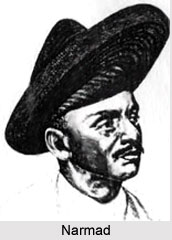 Gujarati as an Indian regional language counts amongst one of the oldest languages of India. Literature in Gujarati is sometimes also classified into two broad categories, namely poetry and prose, the former savouring and basking with a long lineage, dating back to the 6th century. Poetry as a perception took place as a medium of expressing religious beliefs and judgements, a stronghold of the medieval Indian times. In this context of gradual evolution, history of Gujarati literature is generally classed into three broad periods, consisting of: Early period (upto c.1450 A.D.), the Middle period (upto 1850 A.D.) and the Modern period (1850 A.D. onwards). However, Gujarati literature and its tremendous maturation and proficiency in contributing is also retraced back to the sultanate (referring to the Muzaffarid dynasty, who had served as the sultans of Gujarat in western India from 1391 to 1583) days.
Gujarati as an Indian regional language counts amongst one of the oldest languages of India. Literature in Gujarati is sometimes also classified into two broad categories, namely poetry and prose, the former savouring and basking with a long lineage, dating back to the 6th century. Poetry as a perception took place as a medium of expressing religious beliefs and judgements, a stronghold of the medieval Indian times. In this context of gradual evolution, history of Gujarati literature is generally classed into three broad periods, consisting of: Early period (upto c.1450 A.D.), the Middle period (upto 1850 A.D.) and the Modern period (1850 A.D. onwards). However, Gujarati literature and its tremendous maturation and proficiency in contributing is also retraced back to the sultanate (referring to the Muzaffarid dynasty, who had served as the sultans of Gujarat in western India from 1391 to 1583) days.
It is a general accepted norm by historians and researchers in literary genres in Gujarati literature that the earliest writings in this very ancient language were framed by Jaina authors. These were further composed in the form of Rasas, Phagus and Vilasas. Rasas refer to those long poems which were heroic, romantic or narrative in essential nature. Salibhadra Suri`s Bharatesvara Bahubalirasa (1185 A.D.), Vijayasena`s Revanagiri-rasa (1235 A.D.), Ambadeva`s Samararasa (1315 A.D.) and Vinayaprabha`s Gautama Svamirasa (1356 A.D.) are the most hand picked examples of this form of literature in Gujarati language. The other notable Prabandha or narrative poems of this period include Sridhara`s Ranamalla Chanda (1398 A.D.), Merutunga`s Prabodhachintamani, Padmanabha`s Kanhadade Prabandha (1456 A.D.) and Bhima`s Sadayavatsa Katha (1410 A.D.). The phagus are poems that pictured the blissful and cheery nature of the spring festival (Vasantha). Rajasekhara`s Neminatha-phagu (1344 A.D.) and Gunavanta`s Vasantha-vilasa (1350 A.D.) are the unsurpassed instances of such texts. Neminatha Catuspadika (1140 A.D.) by Vinayachandra is the oldest of the baramasi genre of Gujarati poems. The earliest work in Gujarati prose was Tarunaprabha`s Balavabodha (1355 A.D.). Prithvichandra Charita (1422 A.D.) of Manikyasundara, which essentially served as a religious romance, is the most paramount illustration of Old Gujarati prose and is reminiscent of Bana`s Kadambari.
During the 16th century, Gujarati literature had come under the tremendous sway of the Bhakti movement, a popular cultural movement to liberate the religion from entrenched priesthood. Narsimha Mehta (1415-1481 A.D.) was the foremost poet of this era. His poems delineated the very saintly and mystical sense and bore an intense reflection of the philosophy of Advaitism. Narasimha Mehta`s Govinda Gamana, Surata Sangrama, Sudama Charitra and Sringaramala are stupendous and exceptional illustrations of devotional poetry. Another poet, Bhalana (1434-1514 A.D.) had furnished a meritorious representation of Bana`s Kadambari into Gujarati. Bhalana had also composed other substantial and irreplaceable works like Dasama Skandha, Nalakhyana, Ramabala Charitra and Chandi Akhyana. Yet another poet, Mandana had given form to immortal works like Prabodha Battisi, Ramayana and Rukmangada Katha. During this period of the influence of Bhakti Movement upon Gujarati literature, the Ramayana, the Bhagavad Gita, the Yogavashistha and the Panchatantra were all translated into Gujarati language.
The approaching 17th and 18th centuries in Gujarati literature were wholly predominated by three great Gujarati poets, namely - Aksayadasa or Akho (1591-1656), Premananda Bhatta (1636-1734) and Syamaladasa Bhatta or Samala (1699-1769). Akho`s Akho Gita, Cittavicara Samvada and Anubhava Bindu have always been illustrated as being `emphatic` compositions on the Vedanta. Premananda Bhatta, who is deemed as the biggest of all the Gujarati poets, was absolutely involved in taking and elevating Gujarati language and literature to new peak heights. Amongst Premananda Bhatta`s umpteen authorships, the most crucial ones comprise Okha Harana, Nalakhyana, Abhimanyu Akhyana, Dasama Skandha, Sudama Charitra and Sudhanva Khyana. Samala was also an extremely creative and productive poet, who had given birth to unforgettable works like Padmavati, Batrisa Putali, Nanda Batrisi, Simhasana Batrisi and Madana Mohana in Gujarati verse writing. This period also had remained witness to the colossal Puranic revival, which led to the rapid growth and maturation of devotional poetry in Gujarati literature. Dayaram (1767-1852) had given rise to religious, ethical and romantic lyrics referred to as garbis. His most authoritative works comprise Bhakti Posana, Rasika Vallabha and Ajamila Akhyana. The Ramayana was authored by Giridhara in Gujarati during the middle of the 19th century. Parmanand, Brahmanand, Vallabha, Haridas, Dhira Bhagat and Divali Bali were the other authoritative `saint poets` from this period of poetry predomination in Gujarati literature.
Distinguished and notable Jain monk and scholar, Hemachandra Acharya had penned a formal set of `grammarian principles` of the harbinger of Gujarati language during the reign of the Rajput king Siddharaj Jayasinh of Anhilwara. This treatise had formed the cornerstone of Apabhramsa grammar in Gujarati language, establishing a language from the combination of corrupted form of languages like Sanskrit and Ardhamagadhi. The life of Narasinha Mehta was also chronicled and composed as an extensive narrative ballad by Premananda, widely known as the "Mahakavi" of Gujarati, who had served in the late 17th century A.D.
From the middle of 19th century, Gujarati, like other regional Indian languages, came under strong Western influence, precisely due to colonial residence and their reign. Dalpat Ram (1820-1898) and Narmada Shankar (1833-1886) are considered as the trailblazers of modern Gujarati literature. Dalpatram`s Venacharitra portrays his incredible command over hilarity and wittiness. The very first Gujarati dictionary known as Narmakosa, was composed and compiled by Narmada Shankar, which essentially serves as a history of the world, also acting as an authority on poetics. Narmada Shankar also had endeavoured umpteen varieties of poetry and smoothly adapted a few English verses into Gujarati. His Rukmini Harana, Vana Varnana and Virasimha are always considered as masterpiece compendium of poems. The other great works in Gujarati poetry comprise - Bholanath Sarabhai`s Ishvara Prarthanamala (1872), Narsimharao Divatia`s Smarana Samhita, Kusumamala, Hridayavina, Nupura Jhankara and Buddha Charita; Manishankar Ratanji Bhatt`s Devayani, Atijnana, Vasanta Vijaya and Chakravaka Mithuna and Balwantrai Thakore`s Bhanakara. Nanalal was another important poet of this period in Gujarati literature, who had outshone incredibly in his apadya gadya or rhyming prose. Nanalal possesses to his recognition and reputation two poetic compilations, namely - Vasantotsava (1898) and Chitradarsana (1921), an epic referred to as Kuruksetra and numerous plays like Idukumara, Jayajyanta, Viosva Gita, Sanghamitra and Jagat Prerana. Other imperative and fundamental modern Gujarati poets comprise: Umashankar Joshi, Sundarram, Sundarji Betail, Rajendra Shah, Niranjan Bhagat, Benibhai Purohit and Balmukund Dave.
During this period, the Gujarat Vidyapith became the nerve-centre of all literary activities, where new values emerged and more emphasis was given on Indianisation. Novels, short stories, diaries, letters, plays, essays, criticisms, biographies, travel books and all kinds of prose began to flood Gujarati literature.
Modern Gujarati prose was ushered in with a bang by Narmada Shankar (Ragrang), Mansukhram Tripathi, Naval Ram, K.M. Munshi and of course, the legend and nationalist himself, Mahatma Gandhi. Gandhiji`s Daksina Aphrikana Satyagramo Itihasa and Atmakatha are his two most exceptional works in Gujarati. Indeed, after the rise of Mahatma Gandhi`s prominence in a steadily strengthening struggle for Independence and social equality, a great volume of poetry, written by poets like Umashankar, Sundaram, Shesh, Snehrasmi and Betai, amongst others, were centred upon the existing social order, the struggle for Independence and the travails of Mahatma Gandhi himself. Highly inspired by Rabindranath Tagore`s dialogue poems, Umashankar Joshi enriched the existing Gujrati literature by penning in the same manner. His two such poems are Prachina and Mahaprasthan.
During the 1940s, there could be witnessed a rise in communistic poetry and this inspired a movement for progressive literature in Gujarati too. Meghani, Bhogilal Gandhi, Swapnastha and others began to preach class conflict and hatred of religion through their writings. K.M. Munshi is deemed one of the most multitalented and flexible and looming literary figures of Gujarati literature of the contemporary times. K.M. Munshi`s most bulky and voluminous works include dramas, essays, short stories and novels. His famous novels are enlisted within the list of Gujratano Natha, Prithvi Vallabha, Jaya Somanatha (1940), Bhagavan Parasurama (1946) and Tapasvini (1957). Nandshankar (1835-1905) and Govardhanram Tripathi (1855-1907) were among the dazzling and stupendous novelists in Gujarati literature, whose celebrated and well-admired novels comprise Karana Ghelo (1866) and Sarswati Chandra respectively. Gujarati novel however was also made a household name by G.G. Joshi (`Dhumaketu`), Chunilal V. Shah, Gunvantrai Acharya, Jhaverchand Meghani, Pannalal Patel and Manubhai Pancholi. Ranchhodbhai Udayaram (1837-1923) is almost always respected as the groundbreaker and trailblazer in the art of play-writing in Gujarati with his Lalita Dukha Darsaka Nataka. The other significant dramatists were Dalpat Ram, Naval Ram (Bhat Nun Bhopalun), B.K. Thakore, Chandravadan Mehta, Jayanti Dalal and Chunilal Madia. Amongst the important essayists, citation can be made of Kaka Kalelkar, Ratilal Trivedi, Lilavati Munshi, Jyotindra Dave, Jayendrarai Durkal and Ramnarayan Pathak.
Post-Independence Gujarati poetry displays a higher form of subjectivity and explores newer philosophies and lines of thought and imagery. They were more subjective and brutal, discarding old imageries and symbols and replacing them with new ideas. Prominent Gujarati poets of the post-Independence era include critically acclaimed poets like Suresh Joshi, Gulam Mohamed Sheikh, Harinder Dave, Chinu Modi, Nalin Raval and Adil Mansuri, among others. Present day exploration into Gujarat and its language is credited to British administrator Alexander Kinloch Forbes shortly after the British occupation of the region. Alexander Forbes carried out an extensive exploration of Gujarati culture and literature over the prior thousand years of history and amassed a large collection of manuscripts. An organisation named after him, called the Farbas Gujarati Sabha, dedicates itself to the preservation of Gujarati literature and language and history from its headquarters in Mumbai.
Owing to its apparent youth with respect to its written history, the Gujarati script follows the Nagari writing system. Nagari is a derivative of the Devanagari script, with one notable difference being that the horizontal line is not utilised. Gujarati script also has a few other variations in terms of certain consonants and employs a slightly different set of symbols for numbers. Gujarati has also been the language spoken by two of South Asia`s greatest and most prominent leaders: the Father of the Indian Nation, Mahatma Gandhi and the Founder of Pakistan, Mohammed Ali Jinnah.
The post independence prose literature in Gujarati had two distinct trends, that of traditional and modern. The former dealt more with ethical values and its main writers were Gulabdas Broker, Mansukhlal Jhaveri, Vishnuprasad Trivedi and others. While existentialism, surrealism and symbolism have influenced the latter. However, the modernists want to do away with moral values and religious beliefs. Eminent writers of this trend comprise Chandrakant Baxi, Suresh Joshi, Madhu Rai, Raghuvir Chowdhury, Saroj Pathak and others. Gujarati prose has recorded growth and literary feats quite rapidly in less than two hundred years and now can be counted among the front benchers in Indian literature.
In less than two hundred years, Gujarati literature has shown growth in compounded leaps and bounds, an ample demonstration of the Gujarati people`s commitment towards modern ideologies in both expression and thought. With the Gujarat government`s new emphasis on the basics of e-governance and the development of the Information Technology sector, Gujarati is slated to attain the significance it aspires towards in this Digital Era.
Gujarati Literature in Nineteenth Century
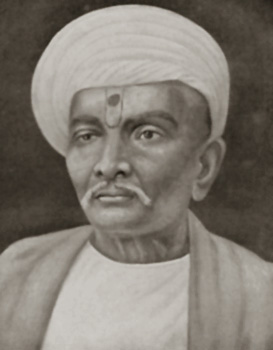 Gujarati literature in the nineteenth century reflected the trends and outlooks that had developed in Gujarat with the coming in of British rule. Similar to the rest of the country, British rule aroused a mixed reaction in Gujarat. For some people, it was like a blessing as it had apparently brought stability and introduced modern means of transport and communication and the benefits of scientific and industrial development. For some others, though they were happy to have contact with the West through English education, were dissatisfied with alien rule and had started thinking in terms of individual and national freedom. It was this divided thought process that was reflected in the literature of Gujarat in the nineteenth century. It was the beginning of modern Gujarati literature, and the foundation was laid for all literary developments in the latter half of the nineteenth century and all through the twentieth century.
Gujarati literature in the nineteenth century reflected the trends and outlooks that had developed in Gujarat with the coming in of British rule. Similar to the rest of the country, British rule aroused a mixed reaction in Gujarat. For some people, it was like a blessing as it had apparently brought stability and introduced modern means of transport and communication and the benefits of scientific and industrial development. For some others, though they were happy to have contact with the West through English education, were dissatisfied with alien rule and had started thinking in terms of individual and national freedom. It was this divided thought process that was reflected in the literature of Gujarat in the nineteenth century. It was the beginning of modern Gujarati literature, and the foundation was laid for all literary developments in the latter half of the nineteenth century and all through the twentieth century.
The divergent views are best seen in the works of the poets Dalpatram (1820-98) and Narmad (1834-86). Though products of the same age, they were poles apart in their attitudes towards British rule. Dalpatram, who knew no English, was encouraged in his literary efforts by an Englishman, Alexander Kinlock Forbes, the magistrate in Ahmedabad, who was interested in the development of the Gujarati language. The Gujarat Vernacular Society was his brainchild. Thus for Dalpatram, British rule was a blessing. But Narmad, who had the advantage of English education, was possessed with the ideas of freedom and liberation from British rule. It is a point to note that both of them shared certain common views on some issues, such as the need for social reforms like opposition to child marriages, encouraging widow remarriages, protecting Indian culture, and education etc. However they still differed rather markedly in their views. In the case of social reforms Dalpatram favored slow change whereas Narmad was more radical.
Prose in Nineteenth Century literature of Gujarat
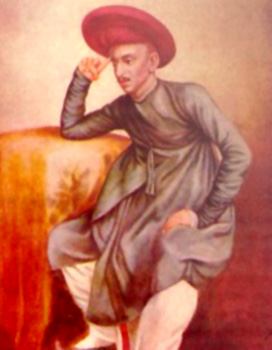 As regards the prose-writing of the two, they wrote quite substantially even in this field in the nineteenth century. Dalpatram, an authority on meters, wrote a treatise called Pingal (Prosody) a sourcebook for scholars for many decades. Narmad`s prose writings included essays, history, autobiography and even a play. Single-handedly, he prepared a Gujarati dictionary (Narmakosh). He wrote profusely on education and social reform in the weekly Dandiyo, published at his own expense, to propagate his reformist ideas. He was completely devoted to the pen, facing hardships and poverty with the courage of a warrior.
As regards the prose-writing of the two, they wrote quite substantially even in this field in the nineteenth century. Dalpatram, an authority on meters, wrote a treatise called Pingal (Prosody) a sourcebook for scholars for many decades. Narmad`s prose writings included essays, history, autobiography and even a play. Single-handedly, he prepared a Gujarati dictionary (Narmakosh). He wrote profusely on education and social reform in the weekly Dandiyo, published at his own expense, to propagate his reformist ideas. He was completely devoted to the pen, facing hardships and poverty with the courage of a warrior.
Dalpatram and Narmad, in their different ways, pioneered new literary trends into Gujarati literature. Poets and writers of the later period did not necessarily imitate them but picked up their literary strands to which they added their own improvements. In the next few years, a number of writers particularly cultivated prose, setting the stage for its further development. The growing influence of the English language, far from subduing the Gujarati language, added new dimensions to it. Efforts were made to evolve appropriate expressions to effectively convey thoughts and human emotions appropriate to Gujarati sensibility.
A notable attempt was the first Gujarati historical novel, Karanghelo (1866) by Nandshankar Tuljashankar Mehta (1835-1905). Gujarati prose had not yet developed to suit that genre, but the novel is important as a first step. His contemporary, Navalram Pandya (1836-88), an educationist and social reformer who edited the then-prestigious journal Shalapatra, wrote, in more cultivated prose, Narmad`s biography translated Kalidasa`s Meghaduta, Moliere`s play `The Mock Doctor` as `Bhatnun Bhopalun` (1867), and wrote an original play, Virmati Natak (1869). He molded Gujarati prose as a vehicle for creative writing and criticism.
Several writers of that period and succeeding decades further developed Gujarati prose with their novels, essays, travelogues, biographies, autobiographies, and journalistic writings. Periodicals like the Buddhiprakash Satyaprakash, Rastgoftar also promoted such writing in Gujarati. Durgaram Manchharam (1809-76), a renowned teacher and social reformer, kept a record of his public activities and also wrote his autobiography. Some time later, Nanilal Nabhubhai Dwivedi, a social reformer and an upholder of women`s education, started the monthly Priyamvada (1864), later changed into Sudharshan (1890), to propagate his ideas about women`s education. He recorded his personal experiences in Atmanimajjan (1895). But Kanta Natak (1882), as the first attempt of a well-structured play, is said to be his most important contribution. He also found the essay form a convenient medium to express his views about education and social reform. His graceful prose bears the mark of his vast learning.
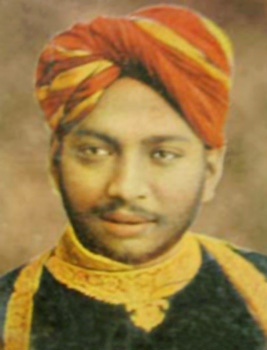
Poetry in Nineteenth Century literature of Gujarat
Dalpatram and Narmad were the first to introduce into Gujarati poetry subjects related to common life, a far cry from the predominantly religious and occasionally romantic and narrative poetry of the earlier period. However, their differences were still rather marked.
Dalpatram`s poetry had commonplace subjects like "trees in a college compound," English law, or even how to write an essay and was replete with his typical sense of humour. But Narmad`s poetry, written in a serious strain, had subjects of direct social relevance, reflecting his impatience and recklessness Influenced by English poetry, he also wrote poems about personal love, patriotism, freedom, nature, and so on.
During the nineteenth century, apart from the works of Dalpatram and Narmad, Gujarati poetry made further strides. Balashankar (1858-99), a bohemian by nature, wrote erotic poetry, combining the Shakta and Persian influences. Balashankar`s brief and stormy career has remained a subject of curiosity and criticism. His freer diction stands apart from the general tone of Gujarati poetry of his time.
Balashankar`s contemporary Kant (1867-1923) was also an innovative poet, but in a different way. He wrote khandakavyas (narrative poems) depicting with intensity sentiments of love and friendship in a picturesque and fluent style. He also wrote highly subjective lyrics. Purvatap (1923), the collection of his poems, was published on the day he died. Kant, who experienced a long period of religious conflict, remained a Christian at heart. He is remembered most for his metrically perfect and emotionally rich khandkavyas and lyrics.
A highly sensitive and romantic poet of this time was Kalapi (1874-1900), who died young but left behind a fairly large number of poems collected as Kalapino Kekarav (1931). He started under the influence of Dalpatram and Narmad but was later fascinated by English romantic poets, Narasinghrao`s nature poems and lyrics, Balashankar`s ghazal (verse) and Kant`s khandakavyas. His highly subjective poetry, full of delicate emotions, reflects anguish of love in his own life. He wrote some ghazals, too, combining Sufism and Advaita philosophy. His Kashmirno Pravas (1912) is the first "creative travelogue" in Gujarati, a specimen of good prose.
Thus the nineteenth century literature of Gujarat saw both attitudes adopted towards British rule- of acceptance as well as the call for change.
Impact of British rule on Gujarati Literature
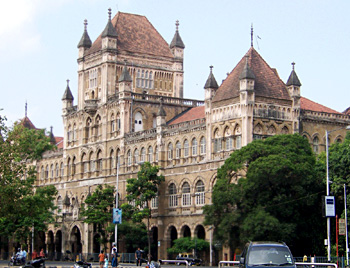 Impact of British rule on Gujarati Literature has been rather immense. In fact, it is a well-known fact that the arrival of the British in India marked the beginning of far-reaching political, economic, social, and cultural changes all over India, and this includes Gujarat. There was seen the introduction of a newer education system which was accessible to wider sections of the population and this gave a boost to the native language known as the vernaculars. The Christian missionaries played a rather crucial role in propagating education among the people. However, in Gujarat, the missionaries could mostly influence the deprived and exploited sections of society. With the spread of English education, the educated sections in Gujarat became acquainted and fascinated by English literature and social and political thought of the West. A reaffirmation of Hindu culture took place simultaneously.
Impact of British rule on Gujarati Literature has been rather immense. In fact, it is a well-known fact that the arrival of the British in India marked the beginning of far-reaching political, economic, social, and cultural changes all over India, and this includes Gujarat. There was seen the introduction of a newer education system which was accessible to wider sections of the population and this gave a boost to the native language known as the vernaculars. The Christian missionaries played a rather crucial role in propagating education among the people. However, in Gujarat, the missionaries could mostly influence the deprived and exploited sections of society. With the spread of English education, the educated sections in Gujarat became acquainted and fascinated by English literature and social and political thought of the West. A reaffirmation of Hindu culture took place simultaneously.
These new trends in the socio-cultural scenario led to the opening of new schools and establishment of institutions like the Royal Asiatic Society,Mumbai, the Elphinstone School and the Elphinstone Institute of Mumbai (1835), Gujarat Vernacular Society (1844), which later became the Gujarat Vidya Sabha, the Buddhivardhak Sabha, Mumbai (1851), and Manavdharma Sabha, Surat (1844). This brought social, religious, and cultural regeneration, with unmistakable impact on Gujarati literature. With the establishment of the University of Mumbai (1857), people with university education became interested in English literature and culture. Some of them felt inspired to try new literary forms in Gujarati and to translate and adapt some literary works from English.
The coming of printing presses and newspapers like the Mumabai Samachar Weekly, later daily (1822), Amadavad Varatman (1849) of the Gujarat Vernacular Society, Amadavad Samachar Weekly (1860), Gujarat Mitra, Surat (1863), and so on, promoted literary activities. More books were written, published, and serialized. Periodicals like the Buddhiprakash and Gujarat Shalapatra, provided further impetus. With more and more libraries opening up, popular interest in literature steadily grew.
Thus the impact of British rule was felt quite prominently in the Gujarati socio-political and cultural sphere which impacted all aspects of life including literary work. Not only was there a revival of the vernacular language but also an increased interest in the literature of the West which was translated and adapted to the Indian scenario.
Contribution of Parsis to Gujarati literature
Contribution of Parsis to Gujarati literature has been quite marked. The Parsis, after their migration from Iran, had accepted Gujarati as their language. In fact there were many Parsis who had taken to writing in the language right from the seventeenth century. It was in the third decade of the nineteenth century that that the Parsis came into prominence in the literary field. This was mainly through the medium of journalism after the launching of the Bombay Sanmachar (1822). This paper published stories in Gujarati language, based on Persian themes. Behramji Murzban translated Gulbankavali and other works from Persian in the 1850s.
In the period of the 1860`s, the Parsis started emerging strong in the field of plays and theatre. The Parsi Natak Mandali was set up by them in 1852. It staged the first play, Sohrab ane Rustom, that very year in Mumbai. Most of the Parsi plays were translations of Persian or English plays. After the formation of the Parsi Natak Mandali, many other drama companies such as the Victoria Natak Mandali and Persian Natak Mandali. Kekhushru Kabraji (1842-1904), social reformer of the Parsi society of his time, contributed immensely to the development of the Parsi theater and to the Gujarati novel. Theaters like Victoria Natak Manadi initially staged translations of Shakespeare`s plays, but later the plays were based on Persian history and also Hindu mythology. Khurshadji Maherwanji Baliwala (1852-1913) of the Baliwala Grand Theatre also played a leading role in the development of the Parsi theatre which aimed at entertaining and orienting the Parsi community toward social reform.
Beheramji Malabari stands out as one of the most creative writers of the period. Most of his Gujarati poems express nationalist sentiment. His style was a continuation of the poetic style of Narmad and the Pandit Yug. Itihasni Aarasi is his famous patriotic composition. Malabari was the predecessor of the Parsi poet Ardoshir Faramji Khabardar (1881-1953). A Parsi poet of considerable merit, Khabardar published several collections, including Kavyarasika (1901) and Vilasika (1905), with the influences of Dalpatram and Kant. Bharatno Tankar (1919) and Sandeshika (1925) contained patriotic poems. He also wrote garba songs and a eulogy of Gandhiji. While imbibing earlier influences, Khabardar evolved his own musical expression.
Factors Influencing Modern Gujarati Literature
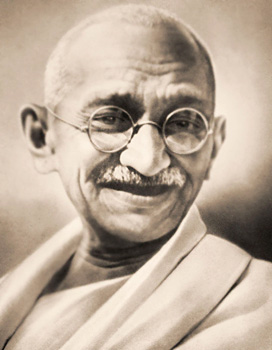 Factors influencing modern Gujarati Literature are quite a few in number. Though old influences continued to exist to a certain extent, there was seen a definite shift in emphasis. There were a number of literary expressions free from the influences of Sanskrit or English literature that came into vogue. This trend was encouraged by organizations such like the Gujarat Vernacular Society, Forbes Sabha, Bhikhsu Akhandanand Publishing House, and Gujarati Sahitya Parishad, as well as by the emergence of periodicals such as the Gujarati, Samalochak, Viami Sadi, Sahitya, Buddhiprakash, Vasant, and Sudarshan. This prepared the ground for developing the Gujarati language to suit the requirements of the age, which rejected heavy scholastic diction. Newspapers also favored simple language. This trend brought some Parsi writers into the field who differed from the mainstream in that they were closer to the public because of their use of daily conversational language.
Factors influencing modern Gujarati Literature are quite a few in number. Though old influences continued to exist to a certain extent, there was seen a definite shift in emphasis. There were a number of literary expressions free from the influences of Sanskrit or English literature that came into vogue. This trend was encouraged by organizations such like the Gujarat Vernacular Society, Forbes Sabha, Bhikhsu Akhandanand Publishing House, and Gujarati Sahitya Parishad, as well as by the emergence of periodicals such as the Gujarati, Samalochak, Viami Sadi, Sahitya, Buddhiprakash, Vasant, and Sudarshan. This prepared the ground for developing the Gujarati language to suit the requirements of the age, which rejected heavy scholastic diction. Newspapers also favored simple language. This trend brought some Parsi writers into the field who differed from the mainstream in that they were closer to the public because of their use of daily conversational language.
One of the major factors responsible for the change in creative field and literary writing in Gujarat, as also the rest of India, is that the country no longer accepted the British ideology blindly. Organizations such as the Brahmo Samaj, Prarthana Samaj, Arya Samaj, and the Theosophical Society had redirected the attention of the educated classes to Indian culture. There was a tendency to strike a balance between Eastern and the Western thought. The establishment of the Indian National Congress (1885) led to a new awakening in India. Even though religion-oriented literature did not cease to be written, there were now seen poets and writers who did not hesitate to turn their attention from God to man. Literature in Gujarat had thus entered a new phase.
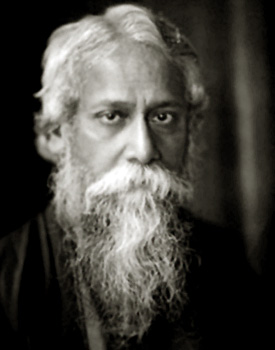 Another major factor which gave a further impetus to this new trend was Mahatma Gandhi`s return from South Africa in 1914. There was felt a distinct change in the environment at this time. With the launching of the Satyagraha movement in 1923, there was a surging tide of nationalism in Gujarat, along with the rest of India. Gujarati literature acquired new dimensions. It was the beginning of a literature infused with the spirit of nationalism, concern for the downtrodden, and humanism.
Another major factor which gave a further impetus to this new trend was Mahatma Gandhi`s return from South Africa in 1914. There was felt a distinct change in the environment at this time. With the launching of the Satyagraha movement in 1923, there was a surging tide of nationalism in Gujarat, along with the rest of India. Gujarati literature acquired new dimensions. It was the beginning of a literature infused with the spirit of nationalism, concern for the downtrodden, and humanism.
During this time, the younger writers were also fascinated by the by the socialist thought of the West and the success of the Russian revolution. That influence grew stronger during the next two decades, with the formation of the Progressive Writers` Association. In Gujarat, too, there was a group of progressive writers. Much was written about the downtrodden in quite a revolutionary spirit.
Yet another factor that played a role in shaping modern Gujarati Literature was the writers` interest in Freudian psychology and the stream-of-consciousness technique of James Joyce, which was dominant in the west at the time. Young Gujarati writers no longer imitated the earlier writers of their own language or even prominent writers like Rabindranath Tagore. Those who started writing in the 1930s tried to bring more psychological content into their creations and themes, with more emphasis on human relationships. They were more concerned with the inner world of their characters. Even when they were writing about the freedom struggle they broke away from the constraints that the earlier writers worked within. Not that they were completely devoid of moral considerations, they were more considerate toward human beings when their actions did not appear to conform to the accepted social norms. This resulted in a strikingly divergent trend in Gujarati creative writing. But it was not quite the end of the earlier phase of Gujarati literature. Old-time writers continued to write, and there were new entrants who had started writing in the last decade of the nineteenth century but had attracted attention only in the first decade of the twentieth century and were active for the next three or four decades.
Prose in Modern Gujarati Literature
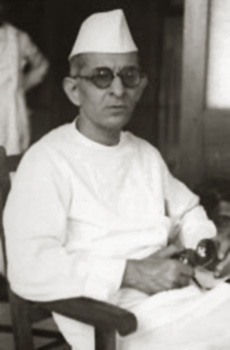 Prose in modern Gujarati literature is best seen in the works of some powerful storytellers. Some of the most prominent prose writers of the time are K. M. Munshi (1887-1971), Ramanlal V. Desai (1890-1954), and Dhoomketu (1892-1965). Prose in modern Gujarati literature can be best understood by taking a look at these different writers and their works.
Prose in modern Gujarati literature is best seen in the works of some powerful storytellers. Some of the most prominent prose writers of the time are K. M. Munshi (1887-1971), Ramanlal V. Desai (1890-1954), and Dhoomketu (1892-1965). Prose in modern Gujarati literature can be best understood by taking a look at these different writers and their works.
K. M. Munshi
Munshi wrote five social novels, such as Vend Vasulat (1913) and Swapnadrishta (1924); seven historical novels, including Patanani Prabhuta (1916), Gujaratno Nath (1917), Rajadhiraj (1918), and Prithvivallabh (1920); and four mythological novels, such as Lopamudra (1930) and Bhagwan Parashuram (1926). His last work, Krishnavatar (1963-74), in eight parts, was left incomplete. Munshi`s social novels, with their romantic atmosphere and autobiographical touches, were quite popular. But his historical novels, said to have been inspired by Alexander Dumas and Sir Walter Scott, took Gujarat by storm. It may be mentioned here that when he was accused of distorting history to suit his creative purpose he defended himself by saying that he was writing novels and not history.
Munshi also wrote a number of social plays. These include Brahmacharyashram (1931) and Dr. Madhurika (1936). Among the mythological plays are Pausanik Natako, Dhruvaswanuni Devi and Lopamudra (1930). Munshi`s other prose writings included biographies of Narasingh Mehta and Narmad, autobiographical works like Adadhe Raste (1943), Swapanasiddihini, Shodhman (1953), and critical writing such as Ketlak Lekho (1926). He did not want to be relegated to narrow confines in life or literature, and thus went on to cover a vast area including a considerable amount of original writing in English language. Thus he was considered a literary giant.
Ramanlal Desai
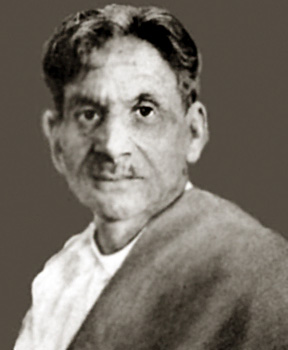 Ramanlal Desai was equally popular and admired for his social and political novels, such as Jayant (1925) and Bharelo Agni (1935), his monumental novel Gramalakshmi, in four parts, which deals with the theme of rural resurgence, and Pralay (1950), a pessimistic, futuristic novel about the impending destruction of humankind. Desai`s play Samyukta (1915) was successfully staged. He wanted to transform the amateur Gujarati stage but felt compelled to write novels, although he did write some more plays. Jhakal (1932) and Pankaj (1935) are Desai`s short story collections. Some of his stories are quite striking, but his novels are more appreciated. Apsara (1933-49) in five parts is a study of the life of prostitutes. He published some autobiographical and critical writing and a couple of poetry collections, too. With his profuse and variegated writings attractively styled, though subdued and restrained in contrast to Munshi`s turbulent style, Desai`s romantic depiction of middle-class life in Gujarat held the attention of his readers for a long time.
Ramanlal Desai was equally popular and admired for his social and political novels, such as Jayant (1925) and Bharelo Agni (1935), his monumental novel Gramalakshmi, in four parts, which deals with the theme of rural resurgence, and Pralay (1950), a pessimistic, futuristic novel about the impending destruction of humankind. Desai`s play Samyukta (1915) was successfully staged. He wanted to transform the amateur Gujarati stage but felt compelled to write novels, although he did write some more plays. Jhakal (1932) and Pankaj (1935) are Desai`s short story collections. Some of his stories are quite striking, but his novels are more appreciated. Apsara (1933-49) in five parts is a study of the life of prostitutes. He published some autobiographical and critical writing and a couple of poetry collections, too. With his profuse and variegated writings attractively styled, though subdued and restrained in contrast to Munshi`s turbulent style, Desai`s romantic depiction of middle-class life in Gujarat held the attention of his readers for a long time.
Dhoomketu
Dhoomketu`s strength lay in writing short stories. Dhansukhlal Mehta, Malayanil, and Munshi did write short stories before him, but the Gujarati short story is believed to have come into its own with Dhoomketu. His short stories appeared in four successive volumes, Tanakhamandal (1926, 1928, 1932, 1934). Dhoomketu enlarged the canvas of the Gujarati short story, depicting characters in their natural habitat, speaking their native language. Dhoomketu also wrote social novels like Rajmugut and Jivananan Khander (1963) and historical novels such as Chauladevi (1940) and Amrapali (1954), and a couple of autobiographical works as well. But short stories overshadowed all his other writings.
Another short story writer of this period was Dhansukhlal Mehta (1890-1974). Apparently written in a lighter vein, his short stories in collections like Hum, Sarala, ane Biji Vato (1924) and Ame Bedhan (1936) have a refined aesthetic sense, deep thinking, and subtle expressions. He regaled his readers and also provided them with an enjoyable literary experience.



















